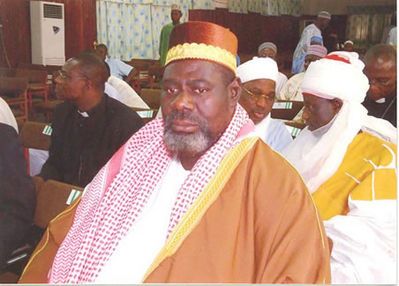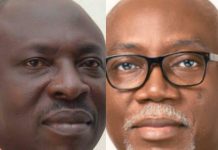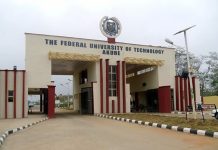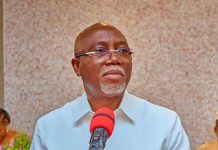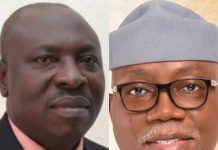
There used to be the controversy over the existence of Muslims of Igbo origin. But that was very long ago. Now the controversy should be on the number of Ndigbo Muslims of Nigeria and not in their existence because they are in existence. Ndigbo Muslims are in every state or every local government of the Igbo territory. But there is yet no assurance that they can be found in every Igbo village. Anyone who claims that they are not in existence is living in the very long past because history shows that they had started reverting to Islam in the early 1900. Investigations show that those who put up the claims, even from amongst the elite and advanced Igbo people, are evidently doing such as the bases to deny and suppress them.
It is quite unfortunate that at the 21st century when civilization in all ramifications is permeating all nooks and crannies of the world with freedom of association having become a universal trend, the Igbo people or say, majority of them would still stand against their own people who adopt a different way of relating with God – people who believe in Islam. Though Christianity is the predominant creed in Igboland, Islam has been in Igboland for over one hundred years. However, both Christianity and Islam are not the original religion of the Igbo. The Igbo were all traditional worshippers. That is why it beats imagination that they could stand against another religion which is universally accepted. Of very recent, after all, secessionist Nnamdi Kalu has openly introduced Judaism which is being accepted by the Ndigbo people. So, why should Ndigbo Muslims be a case for the Igbo nation?
Ndigbo Muslims have been in minority indeed. They are scarcely heard of in the sphere of governance. They are actually not recognized by their political and by extension, their socio-cultural elite. Some of them even hide their faith whenever they are in their homeland for fear of being tackled, heckled or even hackled by their people. Some of them have, on that account, deserted the Igboland to live, procreate and manage life outside Igboland. It is worrisome. It is uncalled for. And it is disheartening. The Igbo should not deny their own people on the base of adopting a different way of worship. They should, rather, decipher between Islam and Muslims. They should dig deeper to understand what Islam stands for and what some Muslims do with or in Islam.
Because of their minority and orchestrated impoverishment and suppression by the local and federal authorities, Ndigbo Muslims have lived in fear, disarray and disunity. Every member had resulted to seeking different ways of survival. Some towed the honourable ways while others indulged in other mean methods including begging and fallacious tendencies. Though some are true, the frequency of persecution reports by new revertees to Islam from the Igbo has often created scenarios of religious caricatures in the eyes of Northern and Southwestern Muslims. That is by the way. There are such scenarios within the majorities.
Ndigbo Muslims had been disunited for too long and it had caused them heavy losses as a tiny entity. Now, for the first time in the history of Nigeria, they have agreed to speak in one voice through the South East Muslims Organization of Nigeria (SEMON) and to align themselves with Ndigbo agenda even while promoting the unity, peace and progress of Nigeria. They recently met in a national summit in Enugu state, the headquarters of the South East geopolitical zone of Nigeria to deliberate on the theme, Igbo Muslims in Nigeria: Challenges and opportunities. As normal, the Enugu state governor ignored the invitation sent to him as well as the appeal to pay him a courtesy call. And as normal, the question remains: Who are these people called Ndigbo Muslims?
Daily Trust newspapers reported SEMON as decrying marginalization of the minority Ndigbo Muslims by both the state and federal governments which had never had any positive plans for them, saying that its members had always faced threat of disqualification in any electoral process, in addition to the fact that they are denied appointments by governments. “In the history of Nigeria, no Igbo Muslim has ever been appointed as Minister, Ambassador, or even Vice President. This is not the same treatment other religious minorities are receiving in Nigeria.” It is a pathetic situation for the Igbo religious minority group.
In a 12-point communiqué issued at the end of the summit, signed by the national executives of SEMON and endorsed by state representatives and elders, they resolved to meet with President Muhammadu Buhari and each of the governors of Southeast states, as well as other socio-cultural and religious groups in Nigeria such as Ohaneze Ndigbo, the Christian Association of Nigeria (CAN), the Arewa Consultative Forum (ACF), Muslim Ummah of Southwest Nigeria (MUSWEN), the Nigerian Supreme Council for Islamic Affairs (NSCIA), Jama’atul Nasiril-Islam (JNI), amongst others, to seek integration and foster unity in Nigeria.
They lauded Igbo leaders’ efforts in defence of the Ndigbo cause and interest in Nigeria, but expressed concern over their exclusion in Ndigbo meetings and plans, a political strategy they doubted would be productive for the development of Igboland and the nation especially as the Southeast seeks the Presidency in 2023. However, for the progress of the Ndigbo Muslim Ummah, they tasked SEMON to continue to advocate for equity and fairness for Ndigbo Muslims and cooperate with governmental and non-governmental organizations that mean well for Igboland, for Nigeria and for Ndigbo Muslims. On the same line, they agreed to promote Igbo culture, including Igbo dress and language and to institute leaderships of Ndigbo Muslims in each of the five states of Southeast and of Igboland in such a way that the organized leaderships can operate like the Emirs in the North and Obas in the Southwest of Nigeria.
Present at the summit were Igbo Muslim leaders, politicians, political activists, scholars, academicians, legal luminaries, traditional rulers, entrepreneurs and SEMON’s executives and representatives in the five states of the zone. Also present were the federal fommissioner of the South East on the Board of the National Hajj Commission of Nigeria (NAHCON), Alhaji Ibrahim Ezeani, executive secretary of Enugu State Pilgrims’ Welfare Board and deputy national secretary (South) of the Nigerian Supreme Council for Islamic Affairs (NSCIA), Sheikh Adam Abdullah Idoko, the 2019 Gubernatorial candidate of the Peoples Party of Nigeria (PPN) in Ebonyi state, Chief Dr. Haroun Ogbonnia Ajah, HRH, the Offor of Umuofor Kingdom and chief Imam of Oguta in Imo state, Dr. Abdul-Fattah Emetumah represented, a senior lecturer of the Federal University, Lafia, Dr. Suleiman Ogah, the senior special assistant (SSA) to the Executive Governor of Abia state, Alhaji (Hon.) Musa Iheakaram, the South East Director of National Directorate of Employment (NDE), Arch. Zubayr Usman Ugwu and the secretary general of Anambra State Muslim Council, Alhaji Sani Ejor.
Other prominent Ndigbo Muslims who graced the summit were the South East coordinator of Federation of Muslim Women Associations of Nigeria (FOMWAN), Hajiya Ruqayyah Ahmad Mika’il represented, chairman of Imo State Muslim Council, Alhaji Yusuf Nwoha, the guest speaker, Alhaji Suleiman Afikpo Phd, director of Islamic Center, Enugu, Alhaji Musa Ani, director of Islamic Center Afikpo, Ustaz Isa Christian Friday Okonkwo, board members of SEMON and its state executives, the legal and security teams of SEMON led by Bar. Haroun Ezeh, amongst others.
Muhammad Ajah is an advocate of humanity, peace and good governance in Abuja. E-mail mobahawwah@yahoo.co.uk.


